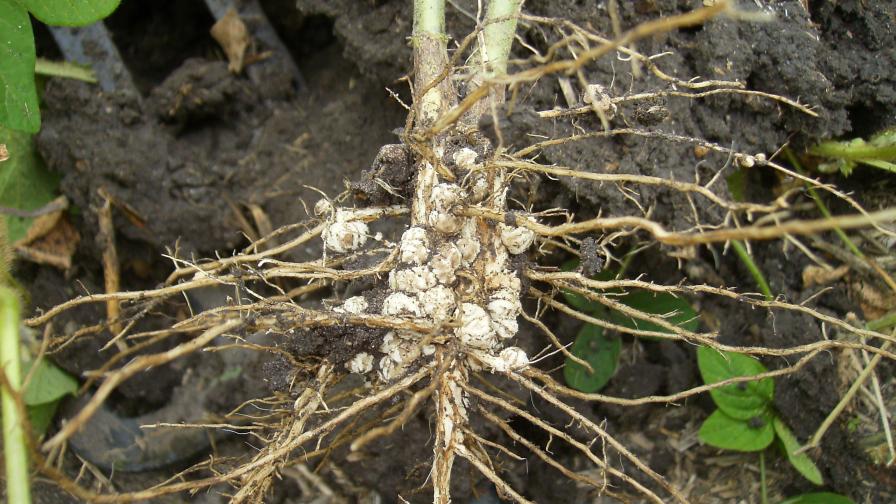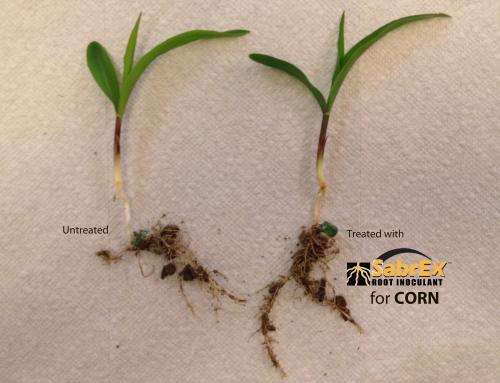U.S.: Banking on Biologicals in Seed Treatments
Vince Wertman harks to “Moore’s law” — a computing term that originated in 1965 — when asked to describe the pace of the technology that melds seed treatment and biology, writes Thomas Skernivitz at CropLife.
“The simplified version of this law states that processor speeds, or overall processing power for computers, will double every two years,” Wertman says. “Biological products, especially since 2008, have increased with the same fold of increase.”
Why so quick?

Soybean seed treated with an inoculant forms large clustered nodules that provide nitrogen to the plant. Photo courtesy of ABM.
At ABM, where Wertman is the Technical Services Director, the Van Wert, OH-based developer of agricultural biologicals is using computational power to bring new products to market. ABM applies deep (machine) learning as a part of its trademarked Smart Selection of next-generation biologicals. “Within five years,” Wertman says, “the biological product offerings will be greatly enhanced, just as the next generation of computing will be.”
In the process an increasing number of companies — large and small — are banking on biological seed treatment products, according to A.J. Hohmann, the U.S. Marketing Manager for Acceleron, a brand of Bayer.
“Companies have recently been investing in biological products because they provide an opportunity for rapid innovation, whereas launching a new corn trait, for example, can take many years and millions of dollars to develop and bring to commercialization,” Hohmann says. “Additionally, the data behind biologicals continues to better illustrate how they can make nutrients more available to plants, helping maximize yield potential and mitigate variability both within and between fields.”

Side-by-side comparison shows the early effects of increased root growth when seed is treated with a biological. Photo courtesy of ABM.
Historically, the focus of biologicals has been on soybeans, Hohmann says. “But I think you will start to see more of a presence in corn,” he adds. Acceleron, for instance, will launch its BioRise 2 Corn Offering in 2019. “We continue to put heavy resources into our R&D as we develop these next-generation bio-enhancers — not just in corn but other crops as well.”
Biological products provide growers season-long advantages, Wertman says. They are multifunctional and establish long-term relationships with plants that are highly beneficial for the plant’s overall health, vigor, and yield, he says. They also offer a level of safety that is not often offered with traditional chemistry, he adds.





